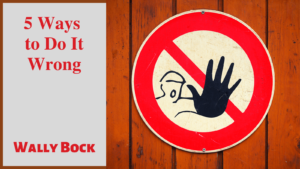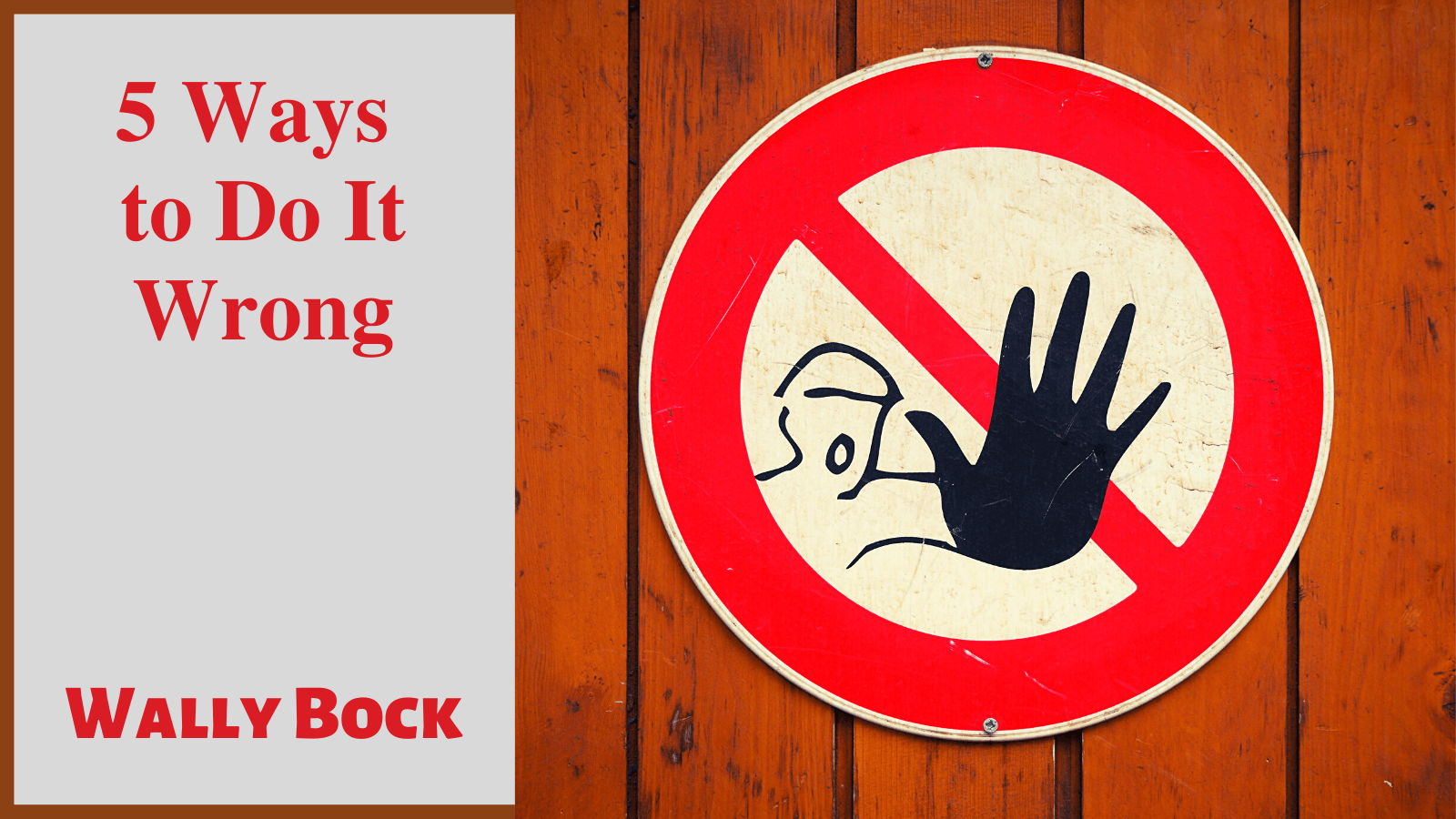 I tell my clients there’s almost always an array of good solutions to any writing problem. There’s usually many more than one right answer. But there are some very specific ways to get things wrong when you’re writing a book. Here are five of them.
I tell my clients there’s almost always an array of good solutions to any writing problem. There’s usually many more than one right answer. But there are some very specific ways to get things wrong when you’re writing a book. Here are five of them.
Start to prepare to begin to get ready
Pondering, planning, or researching when you should be writing is a bad idea. Go into every writing session knowing which are going to start with. Then momentum will carry you. When you wonder about alternative phrasings, try them to see how they sound.
Forego a Professional Edit
You may think passing on a professional edit is a way to save money. I call that, “frugality at any price.” You may think that you don’t need a professional editor. You do.
Professional editors save writers from ourselves. They catch our mistakes, point out our verbal tics, and make suggestions that improve our manuscripts.
One Draft and Done
I was guilty of this one when I started out. I was sure that the manuscript I handed in to my editor on my first book was, like Mary Poppins, practically perfect in every way. When my editor asked how often I revised it, I lied and said, “three.” He smiled, like he’d heard it all before. Then he showed me how much work I still had to do.
Most of my clients’ books take three or four full revisions before they’re ready for a professional editor. You may think you’re the exception who can crank out great work in one draft. I thought that way. I wasn’t. You’re not, either.
Write to an Audience
Platform speakers address an audience. They can say things like, “many of you” or “some of you.” But if you’re writing a book, it’s going to be read by one person at a time.
Don’t write like you’re giving a speech. Write like you’re talking to a friend.
Write like a Writer
Elmore Leonard knew a thing or two about good writing. He even developed his Ten Rules of Writing. Then he added a another one that he said summed up all the others. It was: “If it sounds like writing I rewrite it.”
Many writers think they ‘writing better when they’re actually making it hard for the reader. Don’t write “like a writer.” Write like one human being talking to another human being about something important.
Takeaways
Start to prepare to begin to get ready
Forego a Professional Edit
One Draft and Done
Write to an Audience
Write like a Writer
